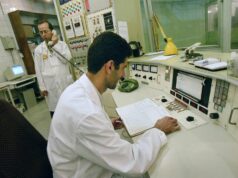Chinese labor Unavailable For BRI, Projects Delayed

Workers are seen on the construction site of the Hunutlu Thermal Power Plant in Adana, Turkey, on Sept. 22, 2019. The Hunutlu Thermal Power Plant, China’s biggest project with direct investment in Turkey, officially started construction on Sunday in the southern province of Adana. The project, with a total investment of 1.7 billion U.S. dollars mainly from the Shanghai Electric Power Company, is a flagship project linking the China-proposed Belt and Road Initiative with Turkey’s “Middle Corridor” vision.
There have been extensive news regarding Belt and Road Initiative (BRI) projects which have been halted as they involve a high proportion of Chinese employees, implying fears that Chinese workers with the coronavirus have curtailed BRI progress.
BRI projects employ a large proportion of Chinese workers as locals are not given much preference Chinese companies are involved in project contracting, infrastructure construction and investing in the projects and also providing their own labour. BRI partner countries have very little say on the number of Chinese employees working at their projects, including workers and managers, that can be hired as they are not subject to local laws, regulations and policies.
During the contract negotiation phase itself parties involved in BRI projects are already made to agree on the division of each workforce. Therefore, it is easy to see that BRI projects have employed too many Chinese laborers and Chinese retain all the levers of control.
Moreover, BRI projects have proven to be an important means to drive up Chinese economy and employment.
While pushing forward the CPEC, China has only paid lip service in helping train Pakistani engineers and workers in order to increase local employment.
As of the end of 2018, economic cooperative zones along the BRI route have generated $ 8 billion in income for China and created only few thousands jobs for local residents.
Though many more jobs resulting from infrastructure project openings such as new train lines have been created but they do not go to the locals.
Now lack of Chinese employees are likely due to the reason the coronavirus is spreading. When the coronavirus outbreak experienced its peak in China in February, few BRI projects reportedly adopted measures to contain the virus, like monitoring workers’ temperatures and implementing screening procedures.
Therefore most of the BRI project has been postponed due to Chinese employees absence from the Project.
Within its own country China has enforced very strict virus containment measures including citywide lockdowns, factory and shop shutdowns, self-quarantines and strict testing procedures. Not only have the measures been strictly implemented, Chinese people also have a high awareness of the precautions they need to take.
The coronavirus is dying down in China as per their claim. Compared to its wild overseas spread, China seems to have controlled the spread due to its strong prevention measures.
Though outside their country Chinese employees still have large chance of transmitting virus when they return to their posts. Other countries are have no confidence in their ability to contain the virus and gradually resuming operations.
Based on the situations of individual countries, the coronavirus pandemic will inevitably result in BRI project delays. These delays will stem from both local virus control measures and also on the proportion of Chinese workers at BRI projects.
For countries like Italy, one of the nations hardest hit by the coronavirus pandemic, BRI projects are expected to be postponed. In other countries where the situation has not deteriorated that much, BRI projects will not be able to maintain their original schedules.
Many BRI infrastructure projects may be completed in the coming years, but the shock of the pandemic will be long -term. Though most countries haven’t yet tamed the virus, the overall situation should be brought under control in the second or third quarter of this year. In the long run, the corona delayed BRI projects will prove to be highly costly.



